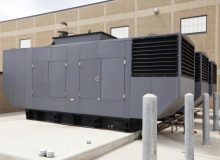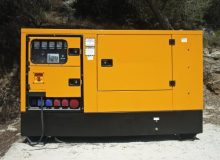Testing fuel before load bank testing could save you over £2,000
Annual load bank testing is critical to ensure your gensets are ready should the mains power fail. Its key advantage is to highlight any issues affecting the engines reliability and capacity of your generator without the risk of losing critical systems. However, load bank testing is not cheap. If the generator fails then the test must be repeated. It’s therefore a good idea to remove any risks to your engines before you test your generators.
One obvious risk is contaminated fuel.
- Regular load bank testing is critical to ensure the reliability of your gensets.
- Dirty fuel can cause the load bank test to fail and result in the test being re-run.
- Having your fuel tested before a load bank test is a lot less expensive than a re-test.
When a generator is exercised monthly it uses very little fuel. This could mask any fuel contamination symptoms. However, during load bank testing the engine has to work a lot harder and for longer. Your engine will use a lot more fuel and so the chances of contamination causing filters to block, injectors to suffer damage or complete engine failure are greatly increased. If the load bank test fails because of contaminated fuel then you’ll need to have your diesel tested and cleaned to cure the problem. You’ll then need to spend another £2,000 on a repeat load bank test.
A simple way to avoid this is to carry out a DieselCheck fuel test before you proceed with a load bank test. IPU’s DieselCheck Testing Service provides you with accurate, reliable fuel quality reports for each of your fuel tanks. We can even interpret the results for you and recommend a course of corrective actions (if needed). It’s a simple way to find out what’s in your fuel tank and is a lot less expensive than a load bank re-test.
Below are two scenarios:
| Company A (no prior DieselCheck test) | Company B (with a DieselCheck test) |
| 1) Load bank testing fails | 1) DieselCheck Fuel Test |
| 2) DieselCheck Fuel Test | 2) ClearTank Fuel Cleaning (if required) |
| 3) ClearTank Fuel Cleaning | 3) Load bank testing successful |
| 4) 2nd load bank testing successful |
Why are stand by generators affected by fuel contamination?
Standby generators by their very nature aren’t used very often. It’s their job to be there ‘just in case’. But this creates the perfect environment for fuel contamination to occur. If your generator is required to provide back up for a number of days, you will store tens of thousands of litres of diesel for months, years or even decades. We’ve created a short video below that explains why fuel contamination occurs:



